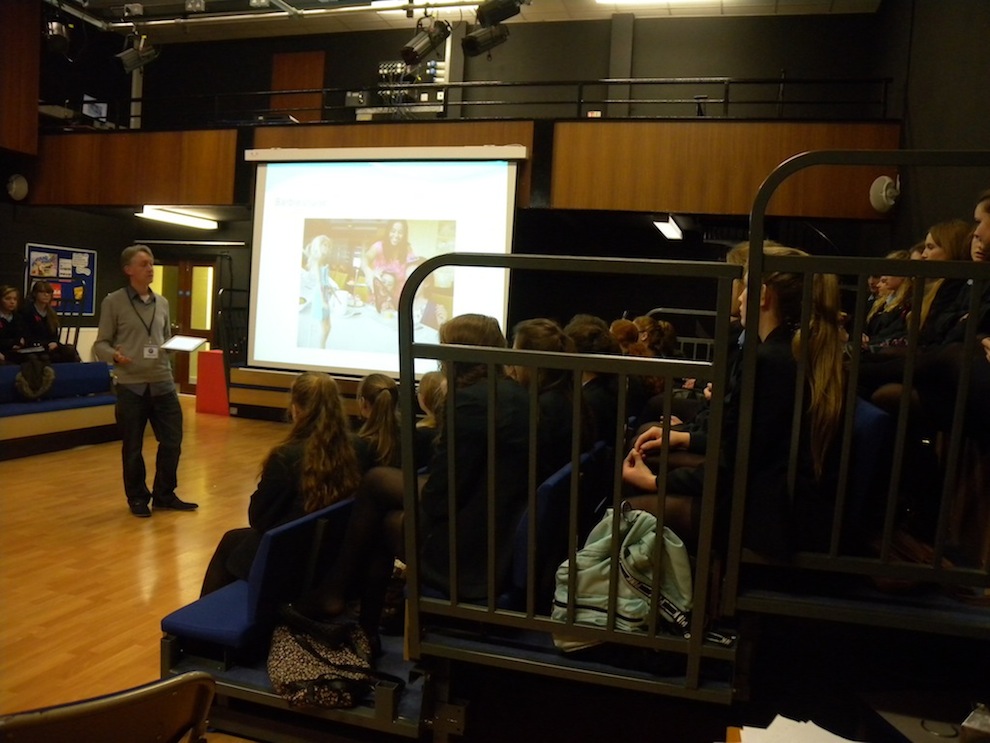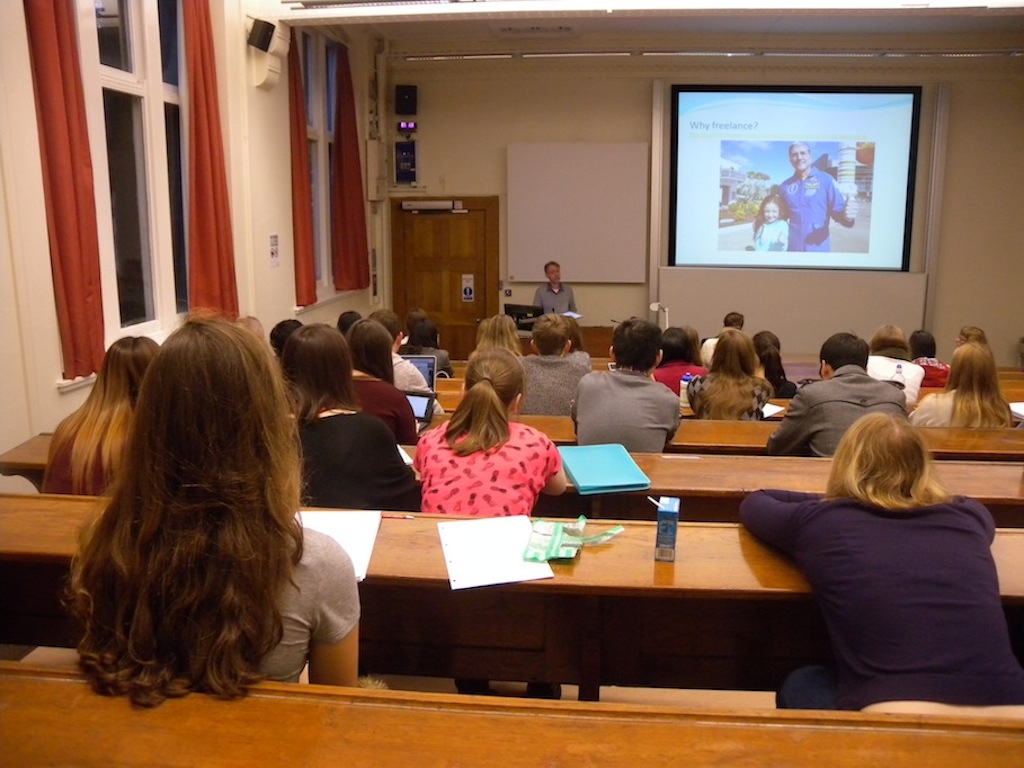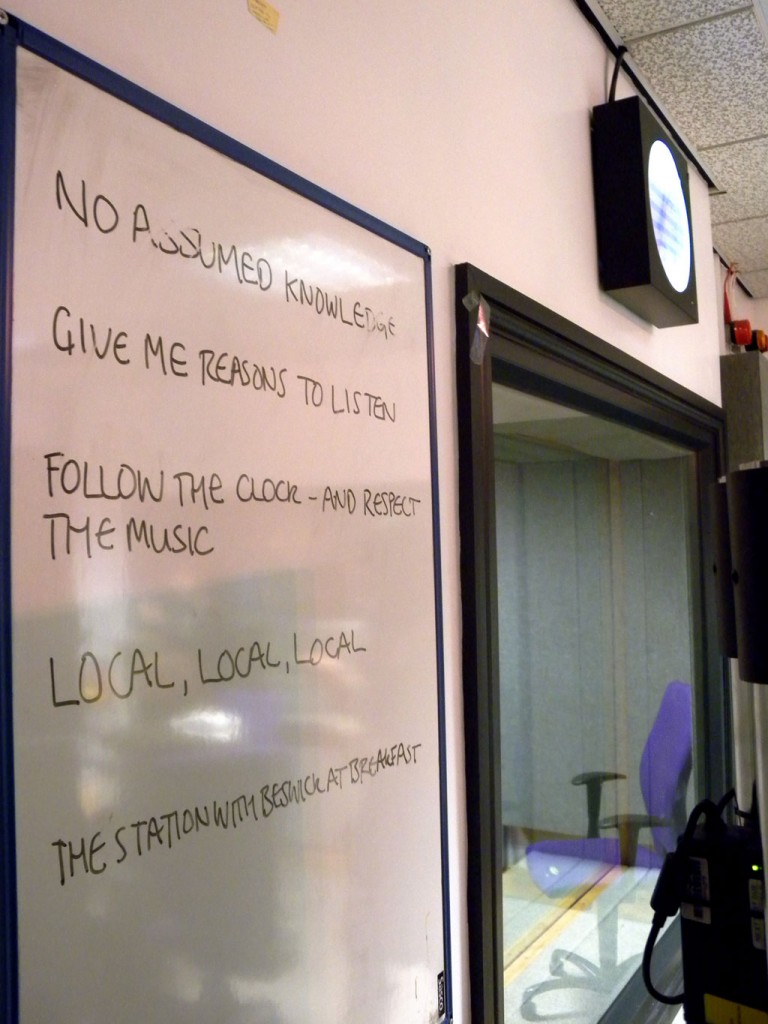Why chose to study arts and humanities subjects?
That was the theme of a careers talk I led this week for Wirral Grammar School for Girls.
The groups of teenagers aged 14-16 are currently considering what subjects to study at A Level.
The majority opt for maths and science but, over three sessions, I looked at why an arts strand of study is equally important.
I also quoted the recent article from The Independent, whereby the comedian Josie Long took Education Secretary Nicky Morgan to task for her “immense, ingrained snobbery” about the arts.
Arts Emergency, the organisation Long has co-founded to get young people into arts subjects, states the arts are important because:
“Without the capacity to think beyond repetition there is no beyond to crisis.”
I went on to talk about how this area lends itself to flexible working and freelance contracts, a hugely growing sector of the economy.
But freelance has pros and cons as follows:
Freelancing means
- Be your own boss
- Greater variety and fresh challenges
- Flexibility for busy lifestyles
- Take more control of your own tax and pension planning
- Chose your own projects – sometimes it’s good to say ‘no’
But freelancing also means
- Irregular hours and income
- The need for a military-stlye self discipline
- You have to keep good records of you income and expenses
- You cane feel like you’re never off duty
- You are only as good as your last commission
Here are some of the comments from the group when I asked them to jot down some feedback after the lecture:
“I now know my father should stop laughing at my interest in arts and English. You gave me confidence – thanks. I will also re-start my blog. Very inspiring talk.”
“I found there are more jobs out there that you can go into without the more academic subjects. It was interesting to hear all the different ways you can make money from writing.”
“It is as hard as I thought it would be to get a job in journalism. But, I learnt, blogs are a good way to start.”
“I learnt that a lot more can be achieved freelance than I originally thought. Arts and English are much more valuable than I thought.”
“I enjoyed the simple, honest way it was presented. It has made me want a career in journalism even more.”
“I learnt that you don’t have to study maths and science to get an interesting job.”
GAZETTEER
Arts Emergency: Why the arts and humanities matter
Josie Long: ‘Belittling the arts is not funny, Education Secretary’
Liked this? Try also National Freelancers Day: A talk for Leeds University Media students.
Do you agree that choosing arts and humanities can help secure your future career? Share your thoughts below.



